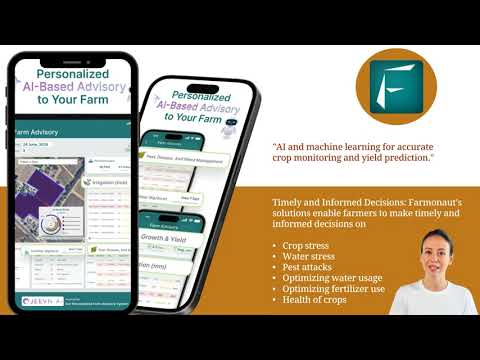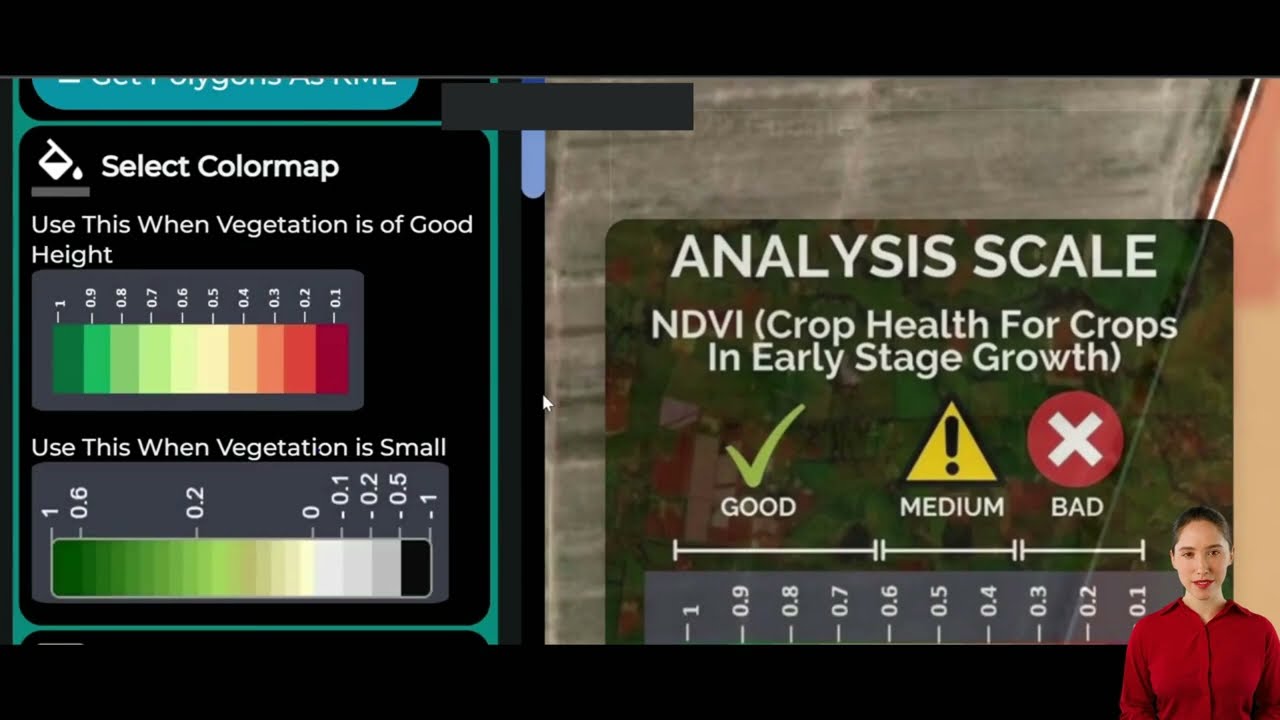Farm Grants in Massachusetts: 7 Powerful Ways Small Farms Grow
“Over $1.5 million in Massachusetts farm grants were awarded in 2023, supporting over 100 small farms statewide.”
Table of Contents
- Introduction
- The Importance of Farm Grants in Massachusetts
- 7 Powerful Ways Farm Grants Help Small Farms Grow
- Major Farm Grant Programs in Massachusetts
- Grant Comparison Table
- Advanced Technologies Supporting Massachusetts Farmers
- Leveraging Farmonaut for Small Farm Success
- Frequently Asked Questions (FAQ)
- Conclusion
Introduction
Welcome to our comprehensive guide on farm grants in Massachusetts—an essential resource for anyone passionate about cultivating small farms in the Bay State. From barn improvements in Ashfield to local farm equipment repair in Franklin County, and the vibrant country shop stands that anchor our communities, grants are the backbone enabling small farms to not only survive but thrive.
Across western Massachusetts, especially in small towns like Ashfield and Chicopee, grant programs are transforming crumbling barns, funding new construction, and creating wheelchair-accessible repair spaces that keep vital agricultural equipment running. This isn’t just about buildings or equipment—it’s about strengthening our rural economy, supporting tourism, building resilient food systems, and giving residents access to fresh, local products right in their own neighborhoods.
The Importance of Farm Grants in Massachusetts
Securing farm grants in Massachusetts has become increasingly vital for the sustainability and growth of local agriculture. Our state, with its unique blend of historic rural landscapes and innovative agricultural practices, is home to thousands of small farms that produce a diverse array of crops, herbs, and value-added products. Many of these farms are located in small towns and rural areas where community shops, like the one on Creamery Road, are not just businesses—they are hubs of local life and tourism.
With limited population in counties such as Franklin, and long distances between shops and residences, the survival and expansion of these small businesses depend on ongoing improvements and infrastructure investment. That’s where grant programs for farms step in—offsetting the high costs of barn construction, equipment repairs, shop expansions, and creating spaces for growing and selling local products.
From funding accessible buildings for farmers in wheelchairs to supporting community apothecary shops selling tinctures, teas, and locally sourced goods, Massachusetts farm grants ripple outward, boosting employment, attracting visitors, and bolstering local economies.
“Massachusetts farm grants funded 60+ barn improvements and 80 equipment repairs for local producers last year.”
7 Powerful Ways Farm Grants Help Small Farms Grow
What does access to agriculture grants for Western Massachusetts really mean for our communities and small farms? Here are the top seven ways these grant programs drive improvement, sustainability, and inclusive growth across the state:
-
1. Critical Equipment Repair and Upgrades
Timing is everything in farming—especially in Franklin and surrounding counties, where short growing seasons and unpredictable weather mean equipment must be reliable. Grants such as the Massachusetts Biz-M-Power program help small farm owners fund local farm equipment repair shops. Without this support, costly breakdowns could lead to lost harvests and income. By keeping tractors and harvesters operational at peak times, farmers reduce dependency on oversubscribed repair shops and avoid lengthy, expensive downtime.
-
2. Funding for Barn Repairs and Rural Construction
Old barns stand as symbols of our agricultural heritage. But with age comes the need for major repairs or replacement. Grants make it possible to rebuild deteriorating structures with safe, modern materials, often blending the old and the new. Funding for barn repairs addresses structural weaknesses, adds value to rural properties, and preserves historic landscapes—all while ensuring farmers have secure storage for crops and equipment.
-
3. Accessible Farm Spaces for All
Whether it’s wheelchair accessible farm buildings or ergonomic upgrades for older workers, grant programs help every member of the Massachusetts farming community participate and thrive. By funding ramps, adaptive workspace equipment, and accessible design, these grants support inclusion alongside productivity.
-
4. New Country Shop Construction Funding
From a new country shop stand in Ashfield to expanded shops in Chicopee, grants help cover the high costs of construction. These shops give residents and visitors access to herbal tinctures, local honey and maple syrup, handmade goods, and essentials like eggs—all produced by small farms. More than a retail outlet, a new shop is often a community gathering place and a tourism driver, helping to sustain other local businesses.
-
5. Growing and Selling Local Products
Small farms thrive by diversifying and growing and selling local products—from fresh produce to value-added goods like soaps, teas, and herbal remedies. Grant funding helps farmers expand their product offerings, invest in packaging and refrigeration, and reach new markets—creating a robust local food system that benefits all residents.
-
6. Energy-Efficient Improvements and Sustainability Upgrades
Many Massachusetts farm grants now prioritize sustainability. Solar panel installations, water-saving irrigation, and energy-efficient heating for greenhouses are just a few upgrades made possible by targeted funding. These investments lower operating costs, support environmental goals, and ensure our farms remain viable for generations.
-
7. Community Building, Workforce Support, and Tourism
When local farms grow with community support for small farms, the entire region benefits. More jobs, education for new farmers, and vibrant rural tourism (think “destination apothecary shops” or autumn apple picking at Franklin County orchards) mean stronger, more resilient communities.
Major Farm Grant Programs in Massachusetts
Navigating the world of grant funding can seem overwhelming, but understanding the range of opportunities available is the first step toward strengthening your farm. Massachusetts agencies and specialized organizations offer a variety of grant programs for farms, focusing on everything from equipment repair and barn improvements to supporting the growth of local products, organic certification, land conservation, and energy efficiency.
Let’s break down the leading statewide and regional grant programs designed to benefit small farms, whether in Ashfield, Franklin County, Chicopee, or beyond.
- MDAR Agricultural Preservation Restriction (APR) Program: Provides funding for permanent farmland protection and improvements to support productive agriculture.
- Baystate Organic Certifiers Cost-Share: Helps cover the costs of organic certification for small producers.
- Massachusetts Food Security Infrastructure Grant Program: Supports infrastructure improvements to enhance food security.
- Biz-M-Power Grant Program: Aimed at micro and small businesses, supporting barn repairs, equipment needs, and construction.
- Specialty Crop Block Grant Program: Assists farms growing fruits, vegetables, and other specialty crops.
- USDA Rural Development Value-Added Producer Grants: Provides federal funding for farmers to expand by developing value-added products.
Each program has its own eligibility criteria, focus areas, and timelines. For small farms looking to grow, repair, or build, strategic selection of the right grant is crucial.
Grant Comparison Table—Best Opportunities for Small Farms in Massachusetts
Below we compare key programs supporting farm grants in Massachusetts, with details on eligible projects (such as equipment repair, barn improvement, and growing local products), maximum funding, application deadlines, and more. This table is your roadmap to finding the ideal support for your farm or rural shop stand!
| Grant Name | Eligible Projects | Estimated Maximum Funding Amount | Application Deadline (est.) | Eligibility Criteria | Website/Contact |
|---|---|---|---|---|---|
| Massachusetts Biz-M-Power Grant Program | Equipment repair, barn improvements, shop construction, accessibility upgrades, working capital | $20,000 (requires matching funds) | Quarterly/rolling | Small businesses & farms with < $2.5M in annual revenue; must operate in MA | BIZ-M-Power Application |
| MDAR APR Improvement Program | Barn repair, farm equipment, infrastructure improvements | $100,000 | Annually (spring) | Land enrolled in APR; farms must meet state eligibility | MDAR APR |
| Massachusetts Food Security Infrastructure Grant | Cold storage, equipment, food processing, distribution logistics | $500,000 | Annually (summer/fall) | Food producers/distributors in MA | Food Security Grant |
| Baystate Organic Certifiers Cost-Share | Organic certification costs (inspection, application fees) | $750 per operation | Annually | USDA organic certified (first-time & renewals) in MA | Baystate Cost-Share |
| Specialty Crop Block Grant Program | Production, processing, and marketing of fruits, nuts, vegetables, floriculture, and nursery crops | $100,000 | Annually (spring) | Farms/businesses producing eligible specialty crops | Specialty Crop Grant |
| USDA Rural Development Value-Added Producer Grant | Processing, marketing, packaging, and new product development | $250,000 | Annually (spring) | Independent producers, agricultural cooperatives, majority-owned producer-based businesses | USDA VAPG |
Use this comparison to identify the grant or funding source best aligned with your farm’s needs—whether that’s local equipment repair, barn construction, or support for growing and selling local products directly to residents and visitors.
Advanced Technologies Supporting Massachusetts Farmers
Modern farming in Massachusetts is more than tending crops and animals—it’s driven by data, precision, and innovation. As our small farms leverage state and federal grants to invest in barns, shops, and equipment, they’re also embracing next-generation tools to boost productivity, sustainability, and traceability.
This is where advanced platforms like Farmonaut—offering AI-driven crop advice, satellite-based monitoring, and resource management—fit in. These technologies empower our farms to maximize grant-funded improvements by reducing waste, protecting yields, and making evidence-based decisions every day.
- Satellite-Based Crop Health Monitoring: Leverage real-time NDVI and soil moisture analytics to optimize fertilizer, water, and harvest timing—minimizing input costs and crop losses.
- Jeevn AI Advisory System: Receive expert farm management strategies, weather forecasting, and pest alerts tailored to your farm’s unique conditions, maximizing your small farm improvements.
- Blockchain-Based Traceability: Provide consumers and business partners with tamper-proof supply chain data, building trust in your local brand. Learn about traceability for farms and supply chains.
- Fleet and Resource Management: Efficiently track and allocate machinery and vehicles, keeping your operation running smoothly. Discover fleet management for farms.
- Carbon Footprinting: Track and reduce your farm’s environmental impact with easy-to-use analytics. Explore carbon footprint management for agriculture.
For farms investing grant money in new infrastructure or expansion, integrating modern technologies multiplies the value of those investments, future-proofs operations, and helps comply with grant requirements for sustainability reporting or traceability.
Leveraging Farmonaut for Small Farm Success
We understand that small farms in Ashfield, Franklin County, and across Western Massachusetts are striving to harness every available resource—from farm grants in Massachusetts to the latest precision agriculture technology.
- Crop Loan and Insurance Verification: Secure grants often requires proof of crop area or compliance—Farmonaut’s satellite-based verification streamlines loan applications and insurance coverage, providing confidence for both farmers and lenders.
- Large Scale Farm Management App: For expanding operations, manage your fields, staff, and assets centrally—track improvements, repairs, and grant project milestones in one place.
- Crop, Plantation & Forest Advisory: Personalized, AI-driven recommendations for timing planting, harvesting, and resource allocations—helping your farm make the most of small farm improvement grants and increase yields.
By aligning grant-funded upgrades with precision monitoring, traceability, and resource management, our platform supports every stage of farm growth—from rebuilding a historic barn to rolling out a new line of herbal teas in your community apothecary shop.
Frequently Asked Questions (FAQ)
1. What types of projects do Massachusetts farm grants support?
Farm grants in Massachusetts support a wide range of projects—including equipment repairs, barn improvements, construction of country shops, accessibility upgrades, cold storage, sustainable energy retrofits, and programs to grow and sell local products or improve food security infrastructure.
2. Who is eligible for farm grants in Massachusetts?
Eligible applicants typically include small farms, agricultural businesses, co-operatives, and landowners operating in Massachusetts. Many grants have revenue or acreage limits. Some programs (like Baystate Organic Certifiers Cost-Share) support first-time organic certification, while others (like Biz-M-Power) are open to small community businesses, including apothecary shops and orchards.
3. Are matching funds required for these grants?
Many state programs, including Biz-M-Power, require businesses to raise matching funds for their project. This doubles the economic impact of each grant dollar, but it’s important to plan for how you’ll meet any required investment.
4. Can farm grants be used for accessibility upgrades?
Yes! Several grant programs for farms specifically encourage accessibility investments, such as building wheelchair-accessible repair spaces, ramps, or adaptive equipment, to ensure broad participation in the state’s agricultural sector.
5. How can I use technology to maximize the benefit of a farm grant?
Modern platforms such as Farmonaut offer real-time monitoring, AI-based advisory, and resource management. These tools can document project progress, optimize grant-funded operations, streamline reporting, improve yields, and support transparency.
6. Where do I start if I want to apply for a Massachusetts farm grant?
Begin by identifying the grant program that best matches your farm’s location (e.g., Ashfield, Chicopee, Franklin County), project type (barn repairs, new construction, equipment), and eligibility. Review application requirements and deadlines (see the Grant Comparison Table above for reference) and prepare documentation, including any matching funds or business plans.
Conclusion
Our small farms in Massachusetts are at the heart of resilient rural communities. With the support of farm grants in Massachusetts—from equipment repairs to new construction funding and programs focused on sustainability—these farms can continue to provide jobs, grow and sell local products, and serve as anchors in our towns and counties.
As we continue to build barns in Ashfield, upgrade apothecary shops, repair harvest equipment for apple orchards, and expand access to healthy, local food, technology and funding together drive our success. Platforms like Farmonaut enhance every grant dollar invested—offering tools that help us sustain, improve, and grow, while meeting the challenges of a changing climate and economy with confidence.
Ready to take your farm (or rural shop stand) to the next level? Explore grant options above, integrate advanced technology with Farmonaut’s app suite, and join a growing network of producers leading Massachusetts agriculture into its most productive era yet.






















